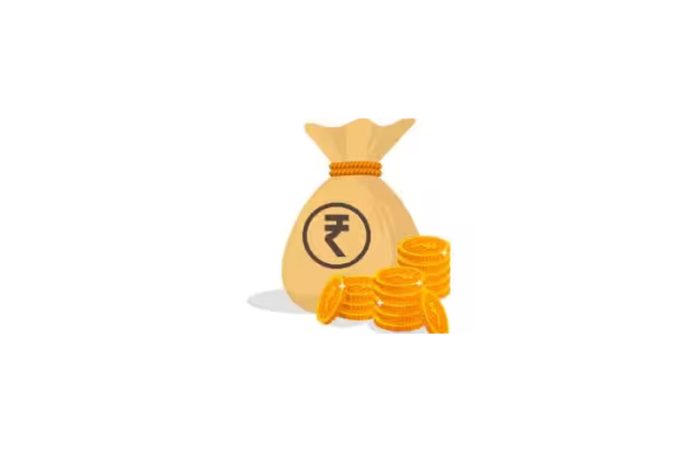Investing is crucial for achieving financial goals, securing your future, and securing yourself against rising inflation. In India, there are multiple investment offers available, each with its own set of features, risks, and benefits. Let us understand some of the best investment options available in India to help you make informed decisions based on your financial goals and risk tolerance.
Exploring Investment Options in India
Some of the most beneficial options to invest your money are as follows:
Fixed Deposits (FDs)
FDs are a safe and secure investment option that come with guaranteed returns. You deposit a specific sum for a predetermined tenure and receive the principal amount along with interest upon maturity. They are ideal for risk-averse investors prioritising capital protection and predictable returns.
However, interest rates on FDs are generally lower compared to other options. FD interest rates can vary depending on the chosen bank, deposit amount, and tenure. Explore offerings from various banks to find the best interest rate. Additionally, consider tax implications on the interest earned from these deposits.
Recurring Deposits (RDs)
Similar to FDs, RDs promote a disciplined savings habit. You commit to investing a fixed amount monthly or quarterly for a chosen term. This inculcates financial discipline and helps build a corpus gradually. RDs offer comparatively higher interest rates compared to FDs. Ensure you can maintain regular contributions throughout the RD tenure. Also, note that premature withdrawals might come with penalties and impact your overall returns.
Public Provident Fund (PPF)
Backed by the Indian government, PPF is a safe, long-term investment option that comes with attractive tax benefits. Investments in PPF qualify for tax exemptions under Section 80C of the Income Tax Act, 1961. Additionally, interest earned and the maturity amount are also exempt from taxes. However, PPF comes with a mandatory 15-year lock-in period, making it more suitable for long-term goals. PPF offers a fixed interest rate that is revised quarterly by the government.
Mutual Funds
Mutual funds allow you to pool your money with others and invest in multiple stocks or bonds chosen by a professional fund manager. This provides diversification and potentially higher returns compared to fixed deposits (FDs) or recurring deposits (RDs). Equity funds focus on stocks, offering the chance for significant growth but also carrying more risk due to market fluctuations. Debt funds, on the other hand, primarily invest in government and corporate bonds, providing steadier returns with lower volatility.
Gold
Gold is considered to be one of the most significant financial assets in Indian households that also holds traditional value. You can invest in physical gold through coins or bars, or opt for digital gold. Gold Exchange Traded Funds (ETFs) are another option, allowing you to invest in small units backed by physical gold. While gold offers diversification and stability, its price fluctuations require a long-term investment plan.
Physical gold storage comes with associated costs and security concerns. When investing in physical gold, factor in making charges and storage costs. Meanwhile, ETFs are a more convenient and cost-effective alternative, but they also come with expense ratios you need to be mindful of.
National Pension System (NPS)
NPS is a government-sponsored pension scheme designed to provide financial security after retirement. Contributions to NPS qualify for tax deductions under Section 80CCD (1) of the Income Tax Act, 1961. The scheme offers a mix of equity and debt instruments, allowing you to customise your investment mix based on your risk tolerance.
NPS caters to long-term financial goals and comes with a lock-in period until retirement, with some exceptions for partial withdrawals. Under NPS a portion of your contributions is invested in equity, which carries market risk. Carefully choose your asset allocation based on your age and risk tolerance.
Real Estate Investment Trusts (REITs)
REITs allow you to invest in income-generating real estate properties without directly owning them. This offers diversification and potentially higher returns compared to traditional fixed-income options. However, REITs are still a relatively new asset class in India, and their performance remains to be seen over the long term. Research the specific REIT and its underlying properties before investing. Understand the associated risks, such as vacancy rates and fluctuations in rental income.
Conclusion
By understanding your investment profile and exploring the available options, you can make informed investment decisions aligned with your financial goals. Remember, diversification is key to mitigating risk. Consider a mix of asset classes based on your risk tolerance. Additionally, do not hesitate to seek professional financial advice to create a personalised investment plan that caters to your unique needs and aspirations. With careful planning and informed choices, you can navigate the investment landscape in India and pave the way for a secure and prosperous future. Get started with your investment journey, today! Visit the website and head over to Bajaj Markets, which facilitates a host of investment options, offered by leading financial institutions in India.


